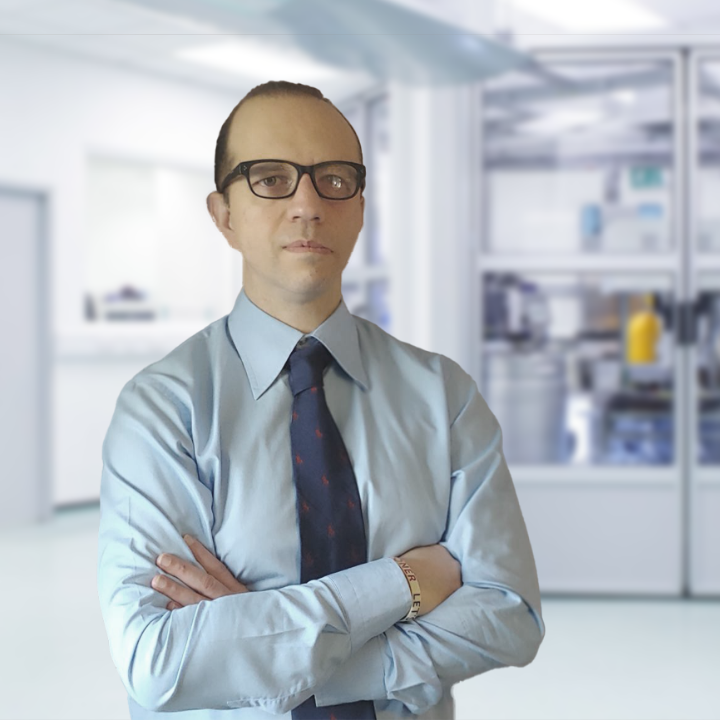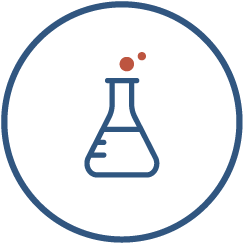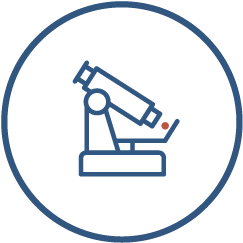Introduction
Computational chemistry, CADD (Computer-Aided Drug Design), cheminformatics and data analysis applications are a key component of any science-led drug discovery project. These approaches have been demonstrated to reduce R&D costs and time and add valuable scientific insights. They are applied at all stages of the drug discovery process to focus effort, impact projects and rapidly move compounds towards the clinic. Outsourcing computational chemistry can play an important role in maximising your R&D outcome.
BioAscent’s computational drug designers work with you to support your drug discovery projects, suggesting and applying the right computational methodologies to help solve the challenges inevitably encountered during the discovery process.
“BioAscent computational chemists worked on a structure-based drug design project where there was a Cryo-EM structure of the target. Working on Cryo-EM models is challenging and BioAscent generated valid docking hypothesis and design concepts which resulted in a series of compounds which showed good activity and enabled us to establish new IP position. The BioAscent team is collaborative and professional. Their extensive experience in structure-based drug design allowed them to make a significant impact on the progress of the project. We would happily recommend the BioAscent In Silico Discovery team for computational projects.”
Director of Medicinal Chemistry, US Biotech
Capabilities
Our In Silico Discovery and Data Analysis scientists have years of knowledge and success applying multiple ligand-based and structure-based computational methodologies at all stages of the drug discovery workflow. Our capabilities include:
Drug discovery is a cross-functional process. Our computational chemists work in concert with you and our medicinal chemistry and biosciences groups, navigating and avoiding the common pitfalls associated with the discovery process, and taking your project from concept to candidate in the most timely and efficient way.

Hardware & Software
BioAscent’s computing capabilities include a rack mount Xeon-based Dell server to support error checking and memory correction, leading to improved stability and less data corruption. This configuration can be easily upgraded and extended to accommodate increased computing needs for specific client projects. In addition to multi-core Xeon CPUs, GPU acceleration is guaranteed by an array of the latest NVidia Ampere architecture graphics cards.
Our server is accessible via individual workstations, these workstations also being available for data analysis and less computationally intensive tasks.
Our hardware together with a state-of-the-art molecular modelling platform allows us, for example, to run ultra-large virtual screenings in the order of billions of compounds in a ligand-based fashion and millions of compounds in a structure-based fashion.
We use innovative commercial and open-source modelling programs, pipelining tools and databases. Depending on the project’s needs, they can be combined and extended to maximise their effectiveness.
Our Experts
“We have been working with the In Silico Discovery team at BioAscent for over a year.
The first target we collaborated on was very challenging because the activity data were unusual. BioAscent proposed a machine learning approach to model that non-linear activity and predict the activity of a set of new compounds.
We then began collaborating on a second target. BioAscent performed MD simulations, docking studies, focused-library design, structure-based and ligand-based virtual screening. Homology modelling was also carried out for series of proteins to understand the potential selectivity issues among isoforms.
Overall, the BioAscent computational chemistry team has been innovative, reliable, and collaborative. Their work has resulted in meaningful scientific insights and idea generation and made a significant impact on the direction and progress of several of our small molecule drug discovery projects. ”
Director Medicinal Chemistry, Global Pharmaceutical Company
Publications
- Implementation of an AI-assisted fragment-generator in an open-source platform. A. E. Bilsland, A. Pugliese, J. Bower. View paper.
- Automated Generation of Novel Fragments Using Screening Data, a Dual SMILES Autoencoder, Transfer Learning and Syntax Correction. A. Bilsland, K. McAulay, R. West, A. Pugliese (corresponding author), J. Bower. View paper.
- The identification and characterisation of autophagy inhibitors from the published kinase inhibitor sets. M. Zachari, J. Rainard, G. Pandarakalam, L. Robinson, J. Gillespie; M. Rajamanickam; V. Hamon; A. Morrison; I. Ganley; S. McElroy. View paper.
- Synthesis and structure–activity relationships of N-(4-benzamidino)-oxazolidinones–potent and selective inhibitors of kallikrein-related peptidase 6; chemRxiv DOI: 10.26434/chemrxiv.9788276, 2019. E. De Vita, N. Smits, H. van den Hurk, E. Beck, J. Hewitt, G. Baillie, E. Russell, A. Pannifer, V. Hamon, A.Morrison, S. McElroy, P. Jones, N. Ignatenko, N. Gunkel and A. Miller. View paper.
- Deep generative molecular design – AI at the service of the drug designer. Pharmacology Matters, British Pharmacological Society's online magazine, 2019. A. Pugliese and J. Bower. View paper.
- Structure-based design, synthesis and biological evaluation of a novel series of isoquinolone and pyrazolo[4,3-c]pyridine inhibitors of fascin 1 as potential anti-metastatic agents. Bioorg Med Chem Lett. 2019; 29: 1023-9. S. Francis, et al. View paper.
- Strategies for Fragment Library Design. In: Erlanson, D.A. and Jahnke W. eds. Fragment-based Drug Discovery: Lessons and Outlook. Wiley,pp. 101-117 2016. J. Bower, A. Pugliese, and M. Drysdale.
- Identification of a selective G1-phase benzimidazolone inhibitor by a senescence-targeted virtual screen using artificial neural networks. Neoplasia. 2015 Sep; 17(9):704-15. A. Bilsland, A. Pugliese, et al. View paper.
- Fragment-Based Hit Identification – Thinking in 3D. Drug Discov Today. 2013 Dec; 18 (23-24):1221-7. AD. Morley, A. Pugliese, et al. View paper.
- Computational tools and resources for metabolism-related property predictions. 2. Application to prediction of half-life time in human liver microsomes. Future Med Chem. 2012 Oct; 4(15):1933-44. AV. Zakharov, ML. Peach, M. Sitzmann, IV. Filippov, HJ. McCartney, LH. Smith, A. Pugliese, MC Nicklaus. View paper.
- Software and Resources for Computational Medicinal Chemistry. Future Med Chem. 2011 Jun; 3(8):1057-85. C. Liao, M. Sitzmann, A. Pugliese, M. Nicklaus. View paper.
Posters & case studies
- The European Lead Factory: A Collaborative Approach to Drug Discovery. ESC Chemistry: F. MacLeod, A. Morrison, E. Beck, P. Jones, J. Hewitt, M. Matheson, J. Schulz, J. Robinson, L. Robinson, J. Gillespie, M. Huggett, M. Rajamanickam; ESC CMC: A. Pannifer, V. Hamon; ESC Biology: S. McElroy, M. Speake, G. Baillie, E. Russell, J. Rainard, A. Porter, G. Pandarakalam, N. Clark, D. Tegazzini. PPSC: H. Rutjes, C.A.A. van Boeckel, N. Smits, E. van Doornmalen, T. W. Lam, M. Bras, C. S. Schofield; J. J. Brem; M. A. McDonough, M. Van der Stelt, F. J. Janssen, P.P. Geurink, H. Ovaa, H. S. Overkleeft, A. C. M. van Esbroeck, M. P. Baggelaar, H. den Dulk. Download PDF
- Harnessing the power of AI to focus compound collections: a collaboration with Medicines Discovery Catapult. Download PDF

Associate Director, In Silico Discovery and Data Analysis
Dr Angelo Pugliese
Angelo is a highly experienced computational chemist, project leader and strategic contributor to discovery teams, and has over 15 years’ experience working across different organisations in US and UK. He has a PhD in computational chemistry from the University of Nottingham. Prior to joining BioAscent, Angelo led the computational chemistry and artificial intelligence team at the drug discovery unit at the Beatson Institute for Cancer Research in Glasgow. Angelo is an expert in in silico structure-based and fragments-based methodologies applied to drug design with a passion for machine learning. He is a co-author on more than 30 publications and patents including a book chapter on fragments library design. Angelo is also a reviewer for several highly regarded journals and fellowships, and serves as an advisory board member for several international conferences.
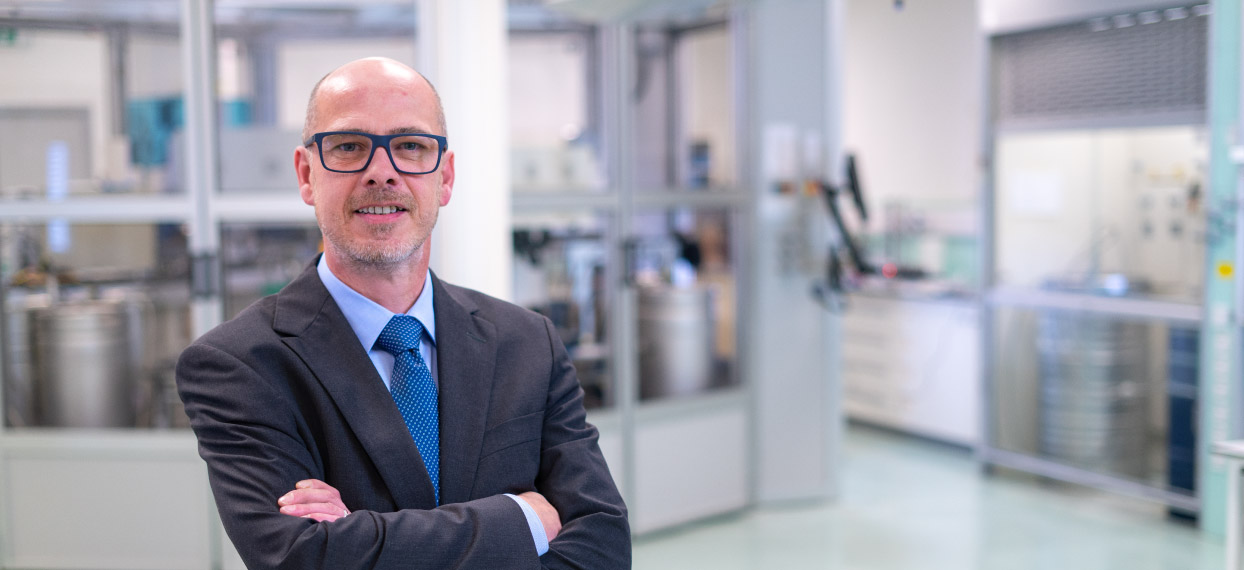
Director of Chemistry
Dr Angus Morrison
Angus has over 15 years’ experience as a practising medicinal chemist leading both project and medicinal chemistry delivery in multinational and multidisciplinary teams. In his most recent role as Head of Chemistry at the European Screening Centre Newhouse he was Medicinal Chemistry lead of the European Lead Factory project responsible for over 30 hit to leads programmes. Prior to this Angus has held leadership roles at Organon, Schering-Plough, MSD, Prosidion and Redx Oncology. During his time in pre-clinical drug discovery he has had broad exposure and experience of working across a diverse range of therapeutic areas and target classes from hit generation to candidate nomination. Angus has a PhD in Organic Chemistry from Strathclyde University and carried out Postgraduate studies at Cambridge University. He is a co-author on over 30 papers and patents.

Director of Chemistry
Dr Angus Morrison
Angus has over 15 years’ experience as a practising medicinal chemist leading both project and medicinal chemistry delivery in multinational and multidisciplinary teams. In his most recent role as Head of Chemistry at the European Screening Centre Newhouse he was Medicinal Chemistry lead of the European Lead Factory project responsible for over 30 hit to leads programmes. Prior to this Angus has held leadership roles at Organon, Schering-Plough, MSD, Prosidion and Redx Oncology. During his time in pre-clinical drug discovery he has had broad exposure and experience of working across a diverse range of therapeutic areas and target classes from hit generation to candidate nomination. Angus has a PhD in Organic Chemistry from Strathclyde University and carried out Postgraduate studies at Cambridge University. He is a co-author on over 30 papers and patents..
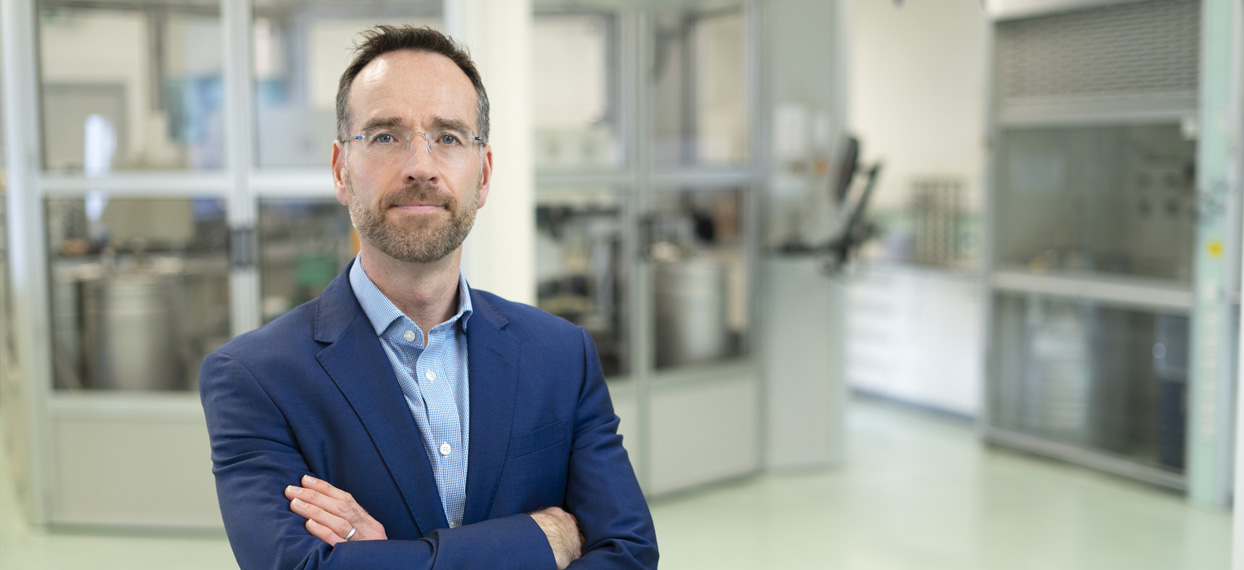
Dr David Milroy
David is a Partner at Maven Capital Partners where he is a member of Maven’s Investment Committee and is responsible for sourcing and executing private equity investments in Scotland as well as technology and life science investments across the UK. His current investments include Blacktrace Group, Curo Compensation, Optoscribe, QikServe, CB Technology and BioAscent. David started his career as a scientist with GlaxoSmithKline.
After completing his PhD, he moved to international consultancy firm Wood Mackenzie (and then parent Deutsche Bank) where he supported the healthcare banking team, advising clients on their corporate and licensing strategies; and performing due diligence projects on companies, products and technologies.
David joined Aberdeen Asset Management’s private equity division (spun-out to form Maven in 2009) in September 2007 as Fund Manager for an early-stage technology fund. David has a First Class Honours degree in Pharmacy, a PhD (Molecular Biology/Gene Delivery) from the University of Bath and a MBA from The University of Edinburgh.
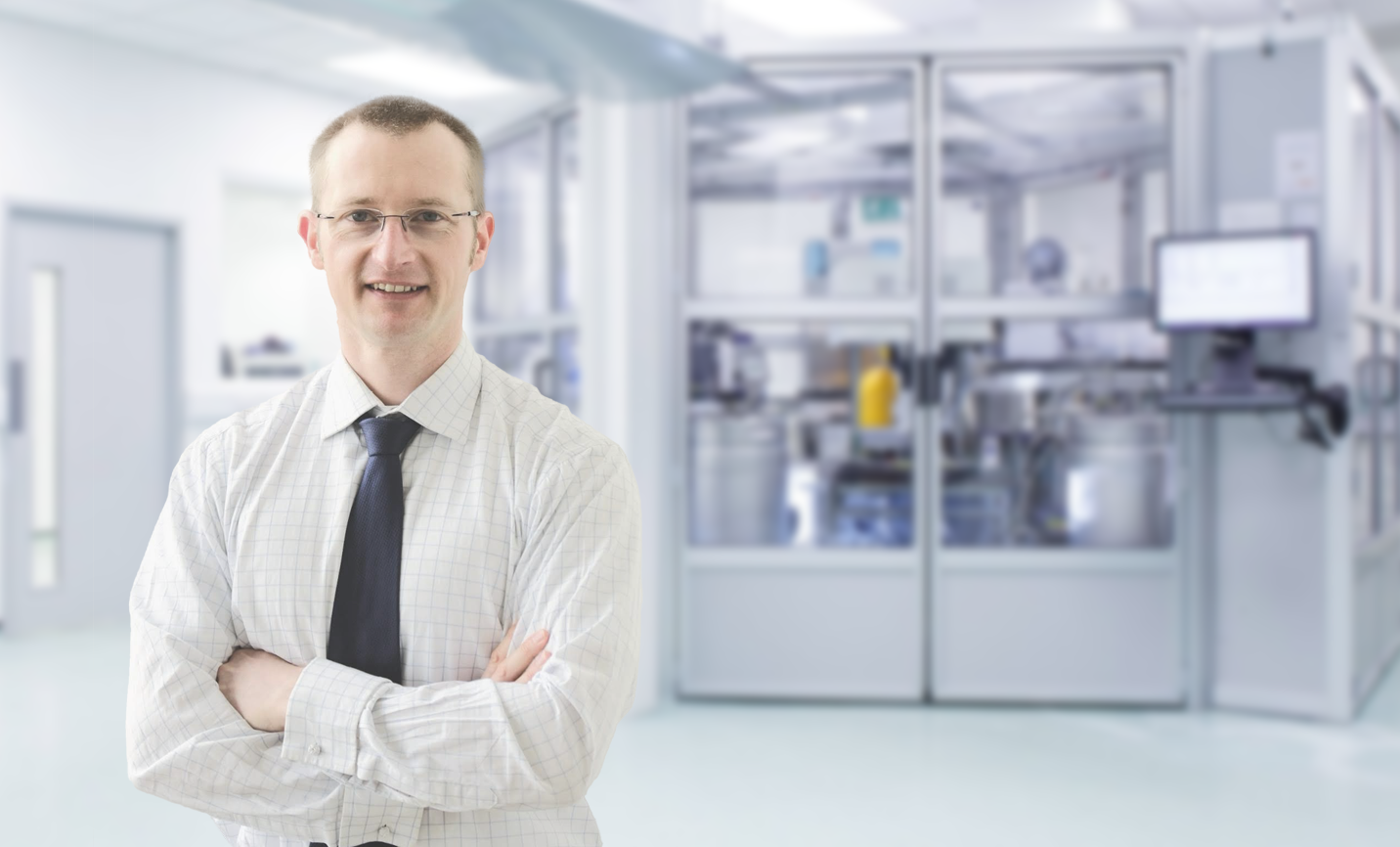
Associate Director of Chemistry
Dr Duncan McArthur
Duncan is an experienced medicinal chemist having worked in the pharmaceutical and not-for-profit sectors for over 18 years. He has broad scientific expertise in several therapeutic areas, working in both lead finding and lead optimisation project teams. Duncan is expert in fragment-based hit finding strategies and developing HTS campaigns. In his previous roles at MSD and more latterly, the Beatson Institute for Cancer Research (BICR), Duncan led multiple internal and cross-site collaborative project teams and managed outsourced chemistry efforts across different companies. Duncan spent over 10 years at the BICR working in the area of fragment-based drug discovery, prioritising and developing mM affinity fragment hits to high affinity lead series. Duncan is a co-author on 20 papers and patents.

CEO BioCity
Dr Glenn Crocker MBE DPhil
Glenn Crocker is an experienced CEO, company founder, non-executive director and investor in the life sciences sector. He has been CEO of BioCity Group since mid-2003, shortly after it was founded. He has a DPhil in Immunology from Oxford University and qualified as a chartered accountant with EY, focussing on working with biotech companies in Palo Alto, California and Cambridge, UK, where he headed up the UK Biotech practice for EY.
BioCity builds, funds and grows life science companies at its four incubator sites in the UK.
Glenn is a non-executive director of a number of companies and consults on business incubation, start-up creation and cluster growth. He has been directly involved in investing in life science companies through BioCity’s own or managed funds since 2006.
In 2014 Glenn received an MBE for services to the biotechnology industry.
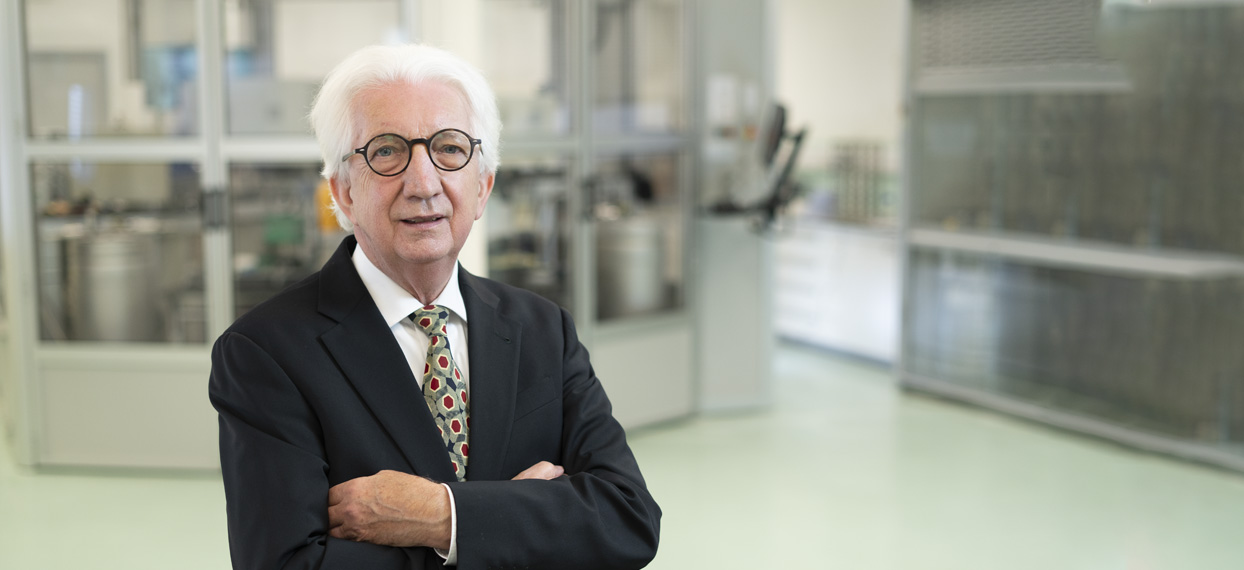
Dr Louis J. Nisbet D.Sc. - Vivanova Ltd
Dr Louis Nisbet
Louis began his career in pharmaceuticals R&D with Roche, Glaxo and SmithKline during which period he achieved international recognition in the discovery of NCEs in infectious diseases. He was one of the UK’s first biotechnology entrepreneurs establishing Xenova and Brax both of which achieved successful exits via IPO and trade sale respectively.
He was the first recipient of the Ernst & Young Biotechnology Entrepreneur of the Year Award. Since 2000 he has been active in investing and building businesses in the private and public equity markets across the health sector. Venture capital investments have been with Kurma Partners, Sitka Partners, Noble Group and Alderley Park Ventures.
He has considerable executive and non-executive Board experience with over 20 quoted and private companies. He has a Ph.D. from Imperial College, London and D.Sc. from the U of Strathclyde.

Chief Commercial Officer
Dr Mike Piper
Mike is an experienced life sciences professional with a track record in sales and marketing strategy, general management, licensing and contract negotiation. Mike was formerly Head of Sales and Marketing at CXR Biosciences, an investigative toxicology CRO. Following CXR’s acquisition by Concept Life Sciences in 2015 he became Vice President Business Development Safety & Toxicology. Prior to his time at CXR, Mike worked in business development and licensing at the specialty pharmaceutical company Ardana plc, and held various pharmaceutical industry management consultancy roles at ZS Associates, Deloitte and Arthur Andersen Business Consulting. Mike has a PhD in genomics from the University of Cambridge, MRC Laboratory of Molecular Biology.

Chief Scientific Advisor
Dr Phil Jones
Phil has over 30 years medicinal chemistry and drug discovery experience from Roche, Organon, Schering-Plough, Merck and the University of Dundee including senior roles as Executive Director and Acting Site Head. He was a member of the Research Leadership Council at Schering-Plough. Numerous clinical candidates resulted from groups for which he was responsible. These span a broad range of target families and therapeutic areas. He has led the European Screening Centre team at Biocity Scotland, Newhouse for the past 5 years and this group plays a key role in delivering validated hit series for SMEs and academics through the IMI funded European Lead Factory. Phil’s postgraduate studies were carried out at the University of Manchester and Imperial College. Phil was elected a Fellow of the Royal Society of Chemistry in 2005, he chaired the Medicinal Chemistry interest group of the Royal Society of Chemistry for 8 years, chaired the organising committee of the European Federation of Medicinal Chemistry – International Symposium on Medicinal Chemistry (EFMC-ISMC) in 2016 and sat on the Executive Committee of the EFMC for four years. He is a co-author on over 70 scientific papers and patents.

Chief Scientific Advisor
Dr Phil Jones
Phil has over 30 years medicinal chemistry and drug discovery experience from Roche, Organon, Schering-Plough, Merck and the University of Dundee including senior roles as Executive Director and Acting Site Head. He was a member of the Research Leadership Council at Schering-Plough. Numerous clinical candidates resulted from groups for which he was responsible. These span a broad range of target families and therapeutic areas. He has led the European Screening Centre team at Biocity Scotland, Newhouse for the past 5 years and this group plays a key role in delivering validated hit series for SMEs and academics through the IMI funded European Lead Factory. Phil’s postgraduate studies were carried out at the University of Manchester and Imperial College. Phil was elected a Fellow of the Royal Society of Chemistry in 2005, he chaired the Medicinal Chemistry interest group of the Royal Society of Chemistry for 8 years, chaired the organising committee of the European Federation of Medicinal Chemistry – International Symposium on Medicinal Chemistry (EFMC-ISMC) in 2016 and sat on the Executive Committee of the EFMC for four years. He is a co-author on over 70 scientific papers and patents.
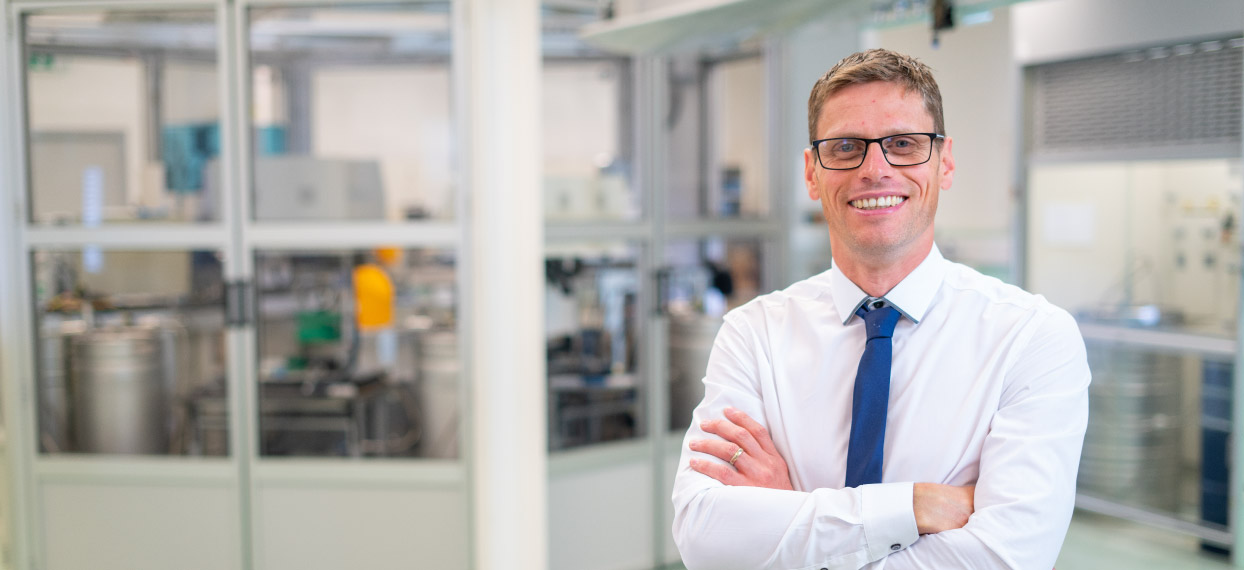
Director of Biosciences
Dr Stuart McElroy
With over 15 years working in drug discovery Stuart has extensive experience of developing and trouble-shooting novel screening assays, designing screening cascades, compound screening, hit validation and supporting hit to lead and lead optimisation programs. Throughout the 5 years of the European Lead Factory project he held the position of Head of Biology at the European Screening Centre (ESC), leading a team of bioscientists in prosecuting and triaging the output of over 90 high throughput screens across all major target classes and disease indications. Prior to this Stuart helped establish the Dundee Drug Discovery Unit (DDU) where he spent 7 years as a project and then team leader working across a wide array of novel drug targets and assays. He also had a leading operational role in DDU-Industry partnerships with both large pharma and SMEs.

Director of Biosciences
Dr Stuart McElroy
With over 15 years working in drug discovery Stuart has extensive experience of developing and trouble-shooting novel screening assays, designing screening cascades, compound screening, hit validation and supporting hit to lead and lead optimisation programs. Throughout the 5 years of the European Lead Factory project he held the position of Head of Biology at the European Screening Centre (ESC), leading a team of bioscientists in prosecuting and triaging the output of over 90 high throughput screens across all major target classes and disease indications. Prior to this Stuart helped establish the Dundee Drug Discovery Unit (DDU) where he spent 7 years as a project and then team leader working across a wide array of novel drug targets and assays. He also had a leading operational role in DDU-Industry partnerships with both large pharma and SMEs.

Chief Operating Officer and Co-founder
Dr Sylviane Boucharens
Sylviane has more than 20 years’ experience in scientific research and drug discovery environment. Sylviane has a track record in building and leading outstanding and productive teams into seamless successful enterprises in start-up and medium and large pharma environment. Prior to BioAscent Sylviane was Head of Global Compound repository and in-vitro Screening (Merck Sharp & Dohme, Newhouse Scotland). She was also responsible for managing a portfolio of early Drug Discovery projects in Cardiovascular from Target Identification and validation to Lead Optimisation. Sylviane attained her PhD in Cellular and Molecular Biology from the University Joseph Fourier, Grenoble, France, followed by post-doctoral positions at the INSERM U366 Laboratory, France and University of Manchester, UK under the Wellcome Trust International Fellowship.

Chief Operating Officer and Co-founder
Dr Sylviane Boucharens
Sylviane has more than 20 years’ experience in scientific research and drug discovery environment. Sylviane has a track record in building and leading outstanding and productive teams into seamless successful enterprises in start-up and medium and large pharma environment. Prior to BioAscent Sylviane was Head of Global Compound repository and in-vitro Screening (Merck Sharp & Dohme, Newhouse Scotland). She was also responsible for managing a portfolio of early Drug Discovery projects in Cardiovascular from Target Identification and validation to Lead Optimisation. Sylviane attained her PhD in Cellular and Molecular Biology from the University Joseph Fourier, Grenoble, France, followed by post-doctoral positions at the INSERM U366 Laboratory, France and University of Manchester, UK under the Wellcome Trust International Fellowship.

Chief Operating Officer and Co-founder
Dr Sylviane Boucharens
Sylviane has more than 20 years’ experience in scientific research and drug discovery environment. Sylviane has a track record in building and leading outstanding and productive teams into seamless successful enterprises in start-up and medium and large pharma environment. Prior to BioAscent Sylviane was Head of Global Compound repository and in-vitro Screening (Merck Sharp & Dohme, Newhouse Scotland). She was also responsible for managing a portfolio of early Drug Discovery projects in Cardiovascular from Target Identification and validation to Lead Optimisation. Sylviane attained her PhD in Cellular and Molecular Biology from the University Joseph Fourier, Grenoble, France, followed by post-doctoral positions at the INSERM U366 Laboratory, France and University of Manchester, UK under the Wellcome Trust International Fellowship.
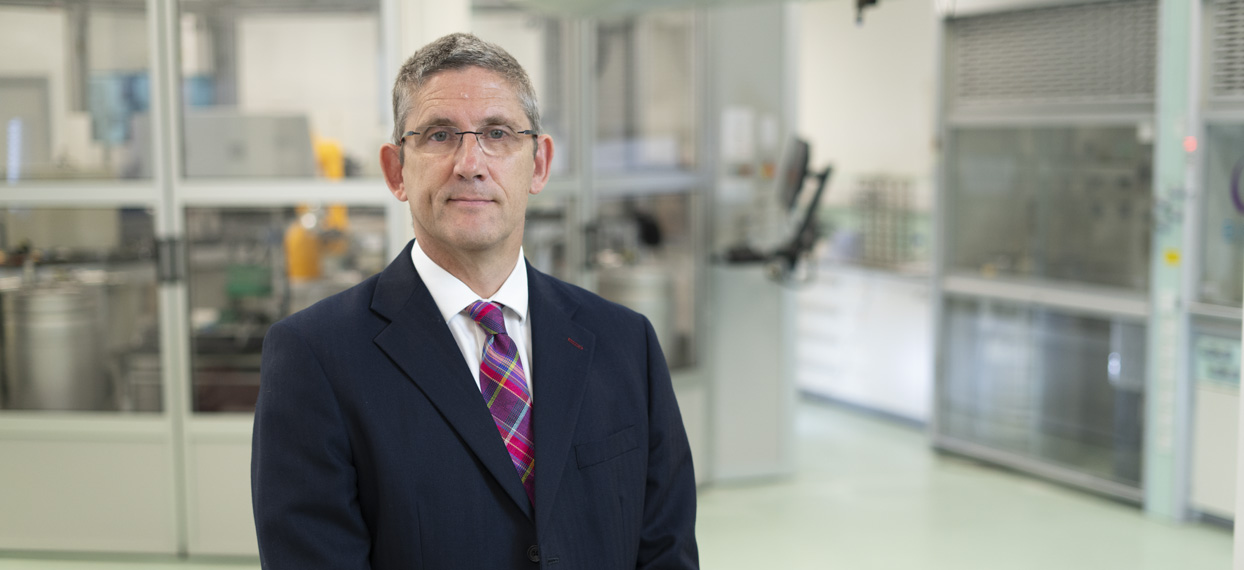
Ian McDonald
Ian is a Chartered Accountant and an experienced Finance Director/Chief Financial Officer with a successful track record gained in SMEs and PLCs in the manufacturing and customer service industries - particularly within life sciences, pharmaceuticals and FMCG.
Ian has successful record of achievement as a CFO within Private Equity backed businesses with credibility gained from developing positive and effective relationships with stakeholders, and successful participation in exits with a proven track record in securing funding for growth from both public sector finance providers as well as institutional finance providers.
Ian’s career is varied having worked primarily in the UK but with extensive overseas travel. As well as heading up a number of large finance teams Ian’s experience extends to successfully evaluating and commercially shaping high value projects including worldwide ERP system implementations as well as mergers and acquisition experience.

Chief Executive Officer
Paul Smith
An experienced Senior Executive with both General Management and Business Development experience in the pharmaceutical/CRO arena. Paul has an understanding of the drug development process from discovery to clinical research gained through more than 29 years in the CRO/pharmaceutical sector. A strategic thinker and management professional with experience gained in both small and large companies and with recent start-up experience including leading funding discussions with VCs and other corporate finance groups. Paul recently turned around and sold CXR Biosciences to Concept Lifesciences in late 2015. Elected Fellow of the Royal Society of Biology, 2013.

Chief Executive Officer
Paul Smith
An experienced Senior Executive with both General Management and Business Development experience in the pharmaceutical/CRO arena. Paul has an understanding of the drug development process from discovery to clinical research gained through more than 29 years in the CRO/pharmaceutical sector. A strategic thinker and management professional with experience gained in both small and large companies and with recent start-up experience including leading funding discussions with VCs and other corporate finance groups. Paul recently turned around and sold CXR Biosciences to Concept Lifesciences in late 2015. Elected Fellow of the Royal Society of Biology, 2013.


